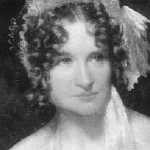The style a form of concealment the way style is.
His manners seemed a parody, almost,
Of manners, a movie star of bygone days;
Strangely elaborate, highly stylized manners,
Complicit with his fame and with your praise;
Looking toward you and then away from you,
Star-like, movie-star-like, a dance routine,
The walk almost a glide, or elegant shuffle,
Always on the verge of veering away,
Circling away and over to the other side
Of the frozen skating arena that he was on;
A dancer’s courtesy, the courtesy,
I mean, of the dancer to the audience,
Flirtatious and familiar, only for you,
And entirely impersonal and withheld.
All of the above, though, maybe, misses the point,
Because it seems to say he knew about
What he was doing or what the style was for,
And nothing let one be sure that this was so;
A look on his face of amusement, as if he knew
A secret that he shared with you and yet
Kept to himself, as if it only showed
The cryptogram but wouldn’t provide the key
To read it with. But could he read the code?
One night, late at night, as we were driving
Home from having had dinner out, in Boston,
We saw him figure skating through Charles Street Circle,
Right through and among the circling lights of cars
As if with champion skill on thin ice whirling
Oblivious to the astonished blaring horns,
As a dancer or skater seems, while dancing to
The music that we hear, oblivious to
The music that we hear and listening to
Some other music heard from somewhere else.
So Peter moved like a dancer or skater through
And among the dangerous outraged cars as if
Untouchable and untouched and moving to
The sounds of something else from somewhere else—
The music maybe of his madness was it?
It was as if he skated in solitude
And glided whirling on a lonely tarn
Far out away from everything there is.

















Comment form: